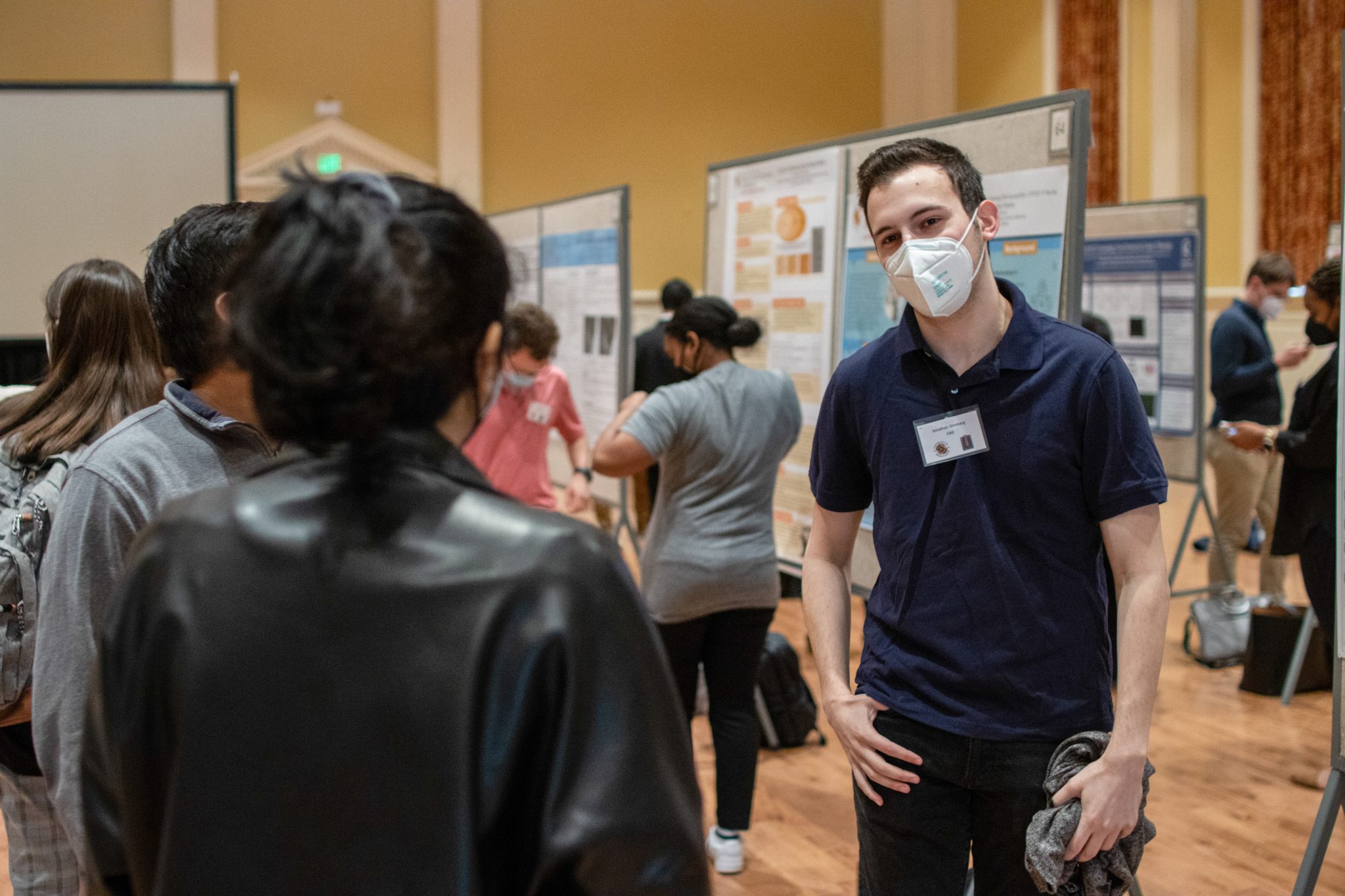By Danielle Hodes
For the Diamondback
University of Maryland students showcased their dedication to researching topics that benefit society on Undergraduate Research Day held in Stamp Student Union on Wednesday. The event featured students from various majors and their research projects.
The event was held to bring recognition to research initiatives going on at this university, and highlight students looking to solve problems in their respective fields.
Abigail Burns, a junior psychology major, researched the connection between self-compassion and psychological well-being through an unconventional method.
Burns investigated 60 public Instagram accounts for signs of self-compassion based on their photos and captions. She counted the number of smiling photos or group photos a person indicated happiness and social support.
Photos accompanied by positive captions or language mentioning accomplishments were indicators of psychological well-being.
Looking at captions was an important element of the research because on social media “you’re projecting what you want people to see of you so, of course, you’re going to be smiling and happy,” Burns said.
[Do Good Challenge awards more than $20,000 to student innovators]
Burns found users following self-compassionate and motivational influencers were more likely to practice self-compassion on their Instagram pages. She said she believes “doing interventions that include self-compassion and increased self-compassion could be a way to increase psychological well being.”
Some of the other research projects have been going on for several years. Lexi Kruger, a senior psychology, physiology and neurobiology major had been working on her study of adolescent family relationships since sophomore year.
Her research examined the impact of the COVID-19 pandemic on adolescent and family relationships. Kruger and her research team have been studying the subjects since infanthood as they grew up.
Kruger rated the adolescents’ relationship with their parents and siblings in the pre-pandemic years when they were 15 years old. She compared those positive or negative ratings to her visit three years later, with the impact of the pandemic.
As COVID-19 affected the vast majority of students Kruger and her team expected students to experience some difficulties due to decreased time with their peers, Kruger said.
Yet she found there were improvements in some family relationships during a negative time period, demonstrating a “resilience factor helping these families to cope during high-stress periods.”
Sibling relationships predicted the state of family relationships in quarantine. Positive pre-pandemic sibling relationships led to improved family relationships during the pandemic.
“[Siblings] protect you during this time by offering a peer-to-peer relationship,” Kruger said.
Some research did not arrive at the predicted outcomes. Emma Selvin, a freshman psychology major, and senior psychology and criminology and criminal justice major Serena Freund explored the effects that encouraging and discouraging language by parents had on childhood math anxiety.
For the pair, the research stemmed from a place of personal interest.
“I think we’ve all experienced some sort of math anxiety,” said Selvin. “We wanted to see the effects of that kind of language on math anxiety.”
The students would be recorded playing math-related board or card games with their children. Selvin and Freund documented the encouraging and discouraging language parents would use as their children played the game.
[Vitalize and Omega-3 snack bars victorious at UMD’s 2022 Pitch Dingman competition]
In the end, they did not find a significant correlation between the use of encouraging or discouraging language on child math anxiety. However, they did find a correlation between encouraging and discouraging words on a child’s enjoyment while in playing the game.



